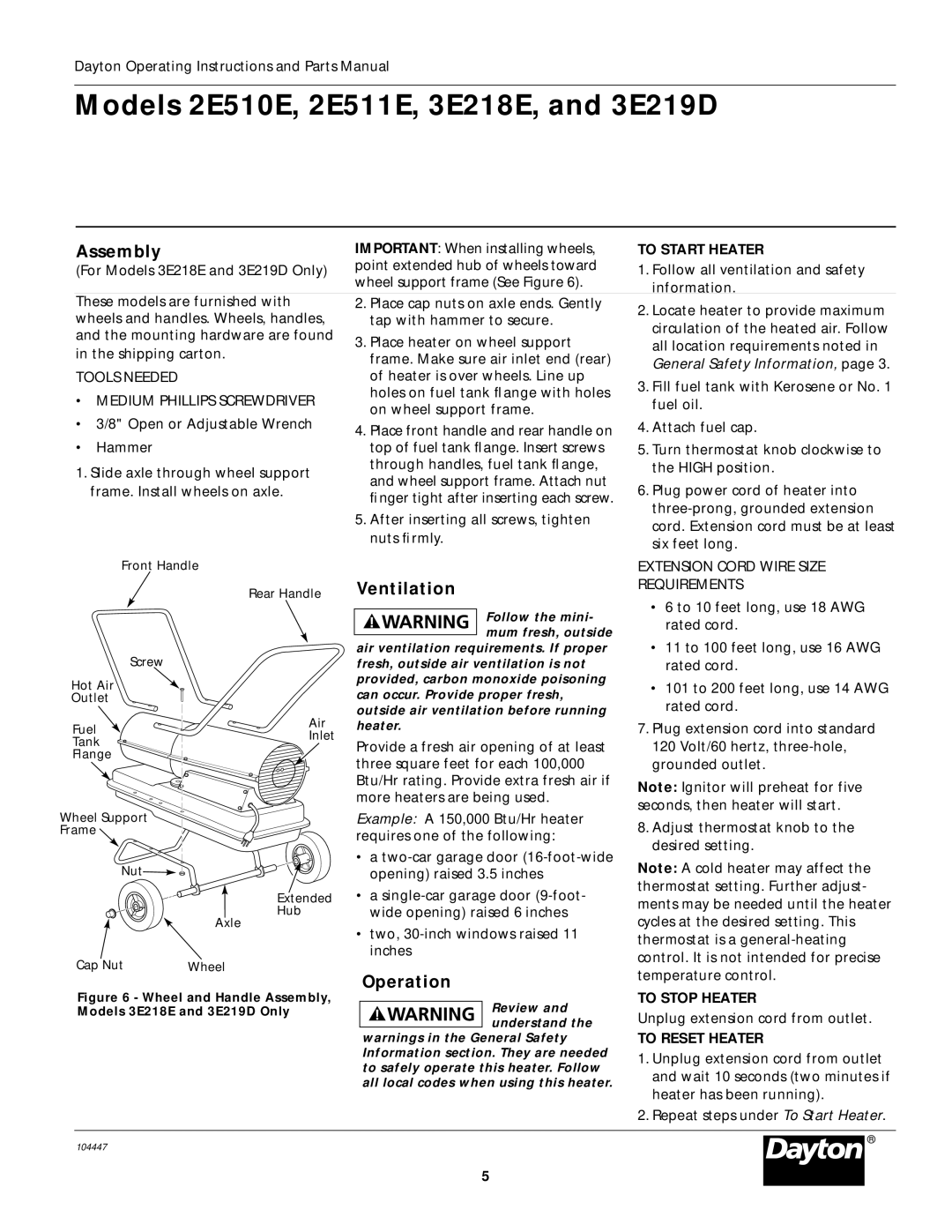2E511E, 2E510E, 3E219D specifications
The Dayton 3E219D, 2E511E, and 2E510E are air circulators that embody modern advancements in design and technology, offering exceptional performance and efficiency. Each model brings unique features, making them suitable for various applications, be it in residential, commercial, or industrial settings.The Dayton 3E219D stands out for its powerful motor that delivers high air movement while maintaining quiet operation. It is equipped with a 3-speed motor, allowing users to select the desired airflow according to their preferences and environmental conditions. The durable construction ensures longevity, with a corrosion-resistant finish ideal for various environments. One of its notable characteristics is the ability to tilt, allowing targeted airflow to specific areas, enhancing comfort significantly.
In contrast, the Dayton 2E511E provides enhanced portability and versatility. With a lightweight design and built-in handle, it can easily be moved from one location to another. This unit also features a three-speed switch, which allows users to adjust airflow as needed. Additionally, the 2E511E is designed to be energy-efficient, making it an environmentally friendly choice that helps reduce electricity bills without compromising performance. Its compact size makes it an excellent choice for tight spaces, while still delivering powerful air circulation.
Meanwhile, the Dayton 2E510E is engineered for heavy-duty usage. This model is built to withstand rigorous operational demands, making it an ideal choice for industrial applications. The sturdy metal housing and protective grille enhance safety and durability even in challenging conditions. Similar to its counterparts, it features a three-speed setting, providing flexibility in airflow management. Furthermore, the 2E510E is designed to promote effective air circulation across larger areas, making it suitable for warehouses or manufacturing facilities.
Together, these three models exemplify Dayton's commitment to quality and performance. Whether you need a robust air circulator for an industrial setting, a portable solution for home use, or a versatile unit for medium applications, Dayton has addressed diverse consumer needs. The integration of energy-efficient designs, user-friendly features, and durable construction ensures that each model provides reliable and long-lasting performance, catering to various airflow requirements. With Dayton's offerings, users can enjoy enhanced comfort and improved air quality in any environment.

